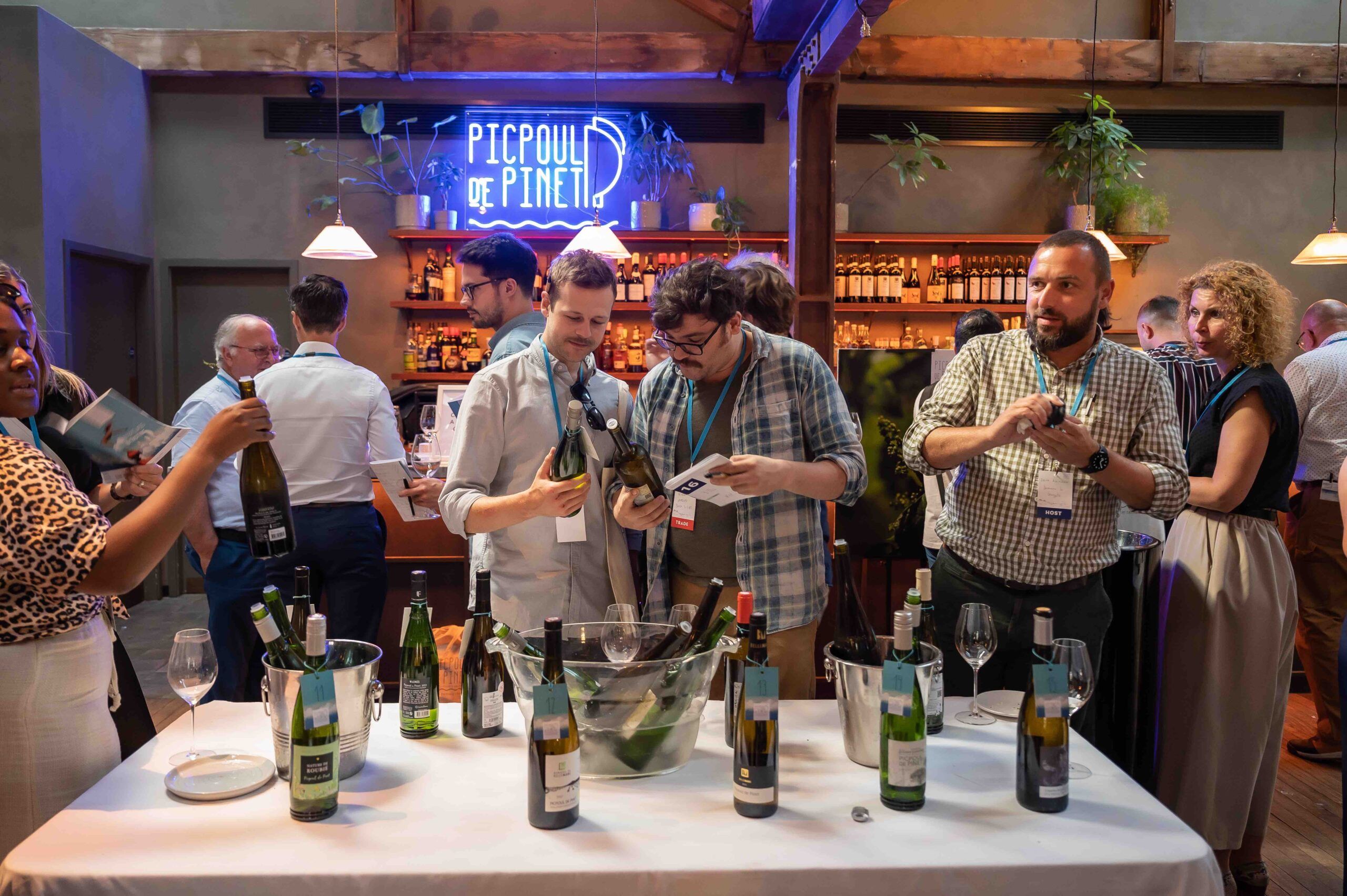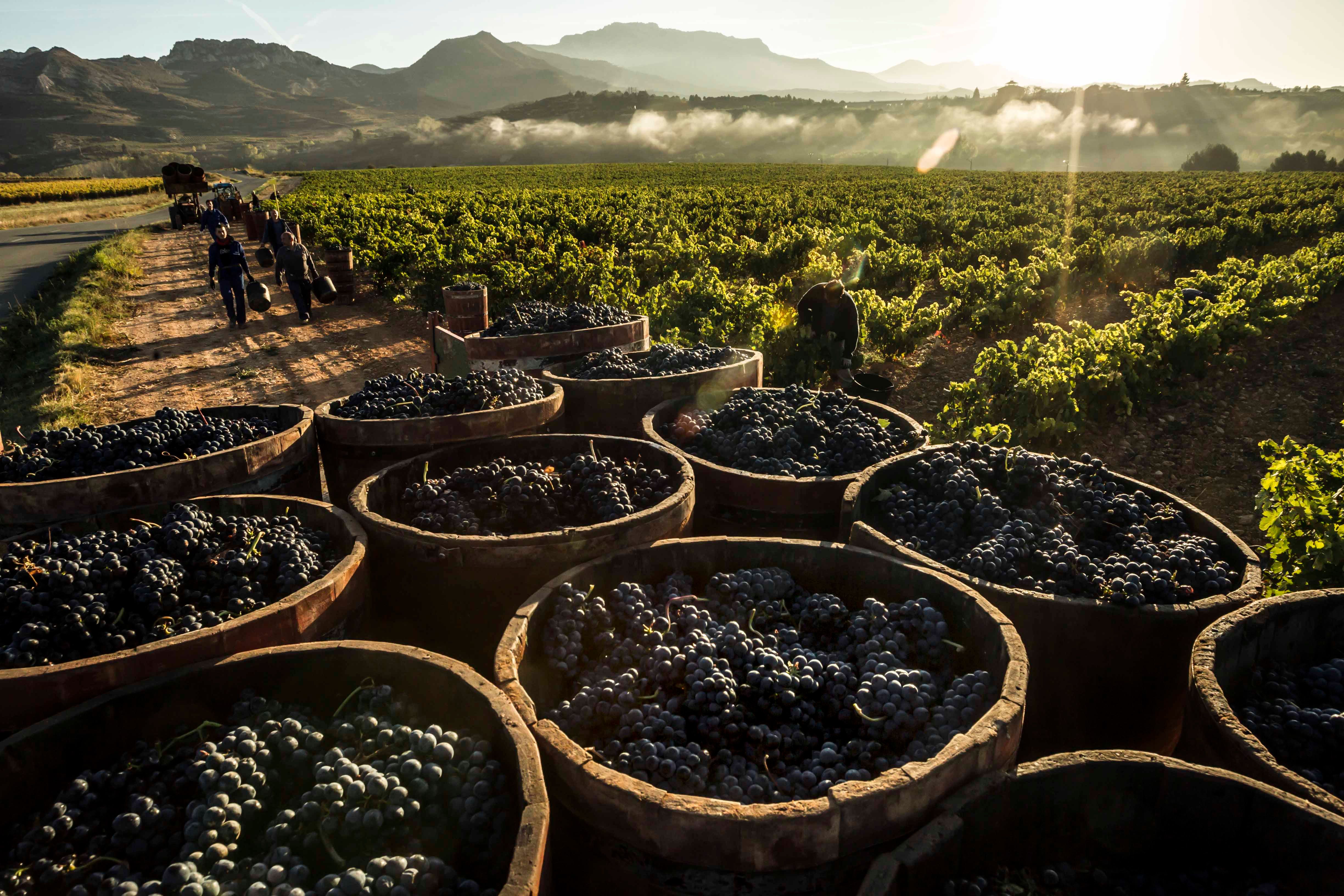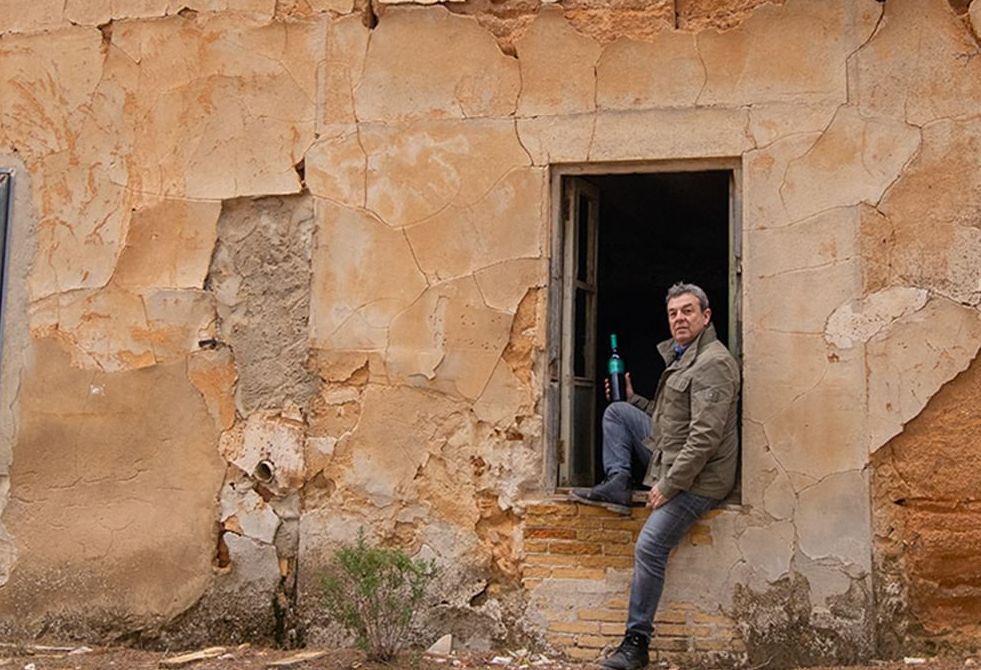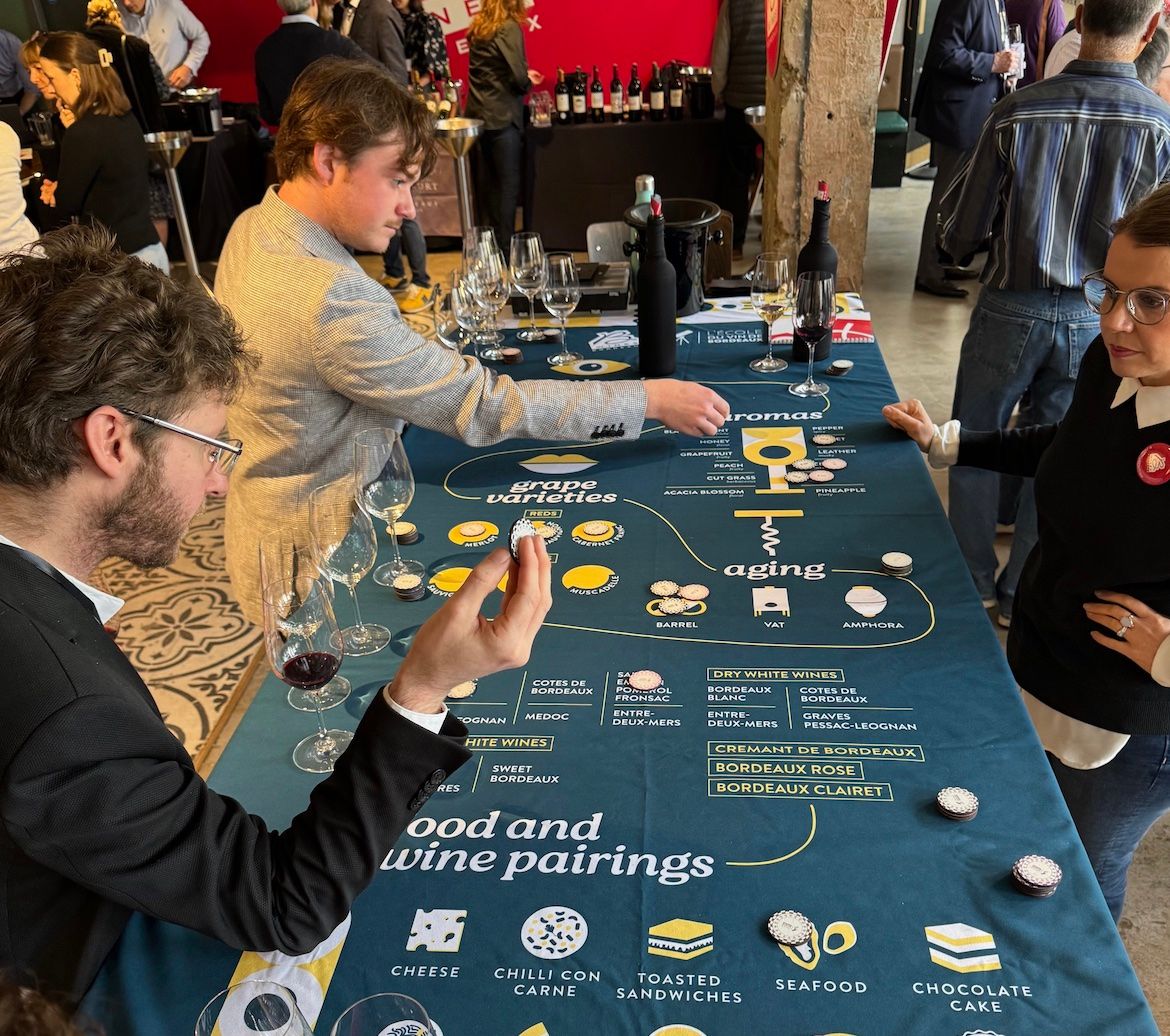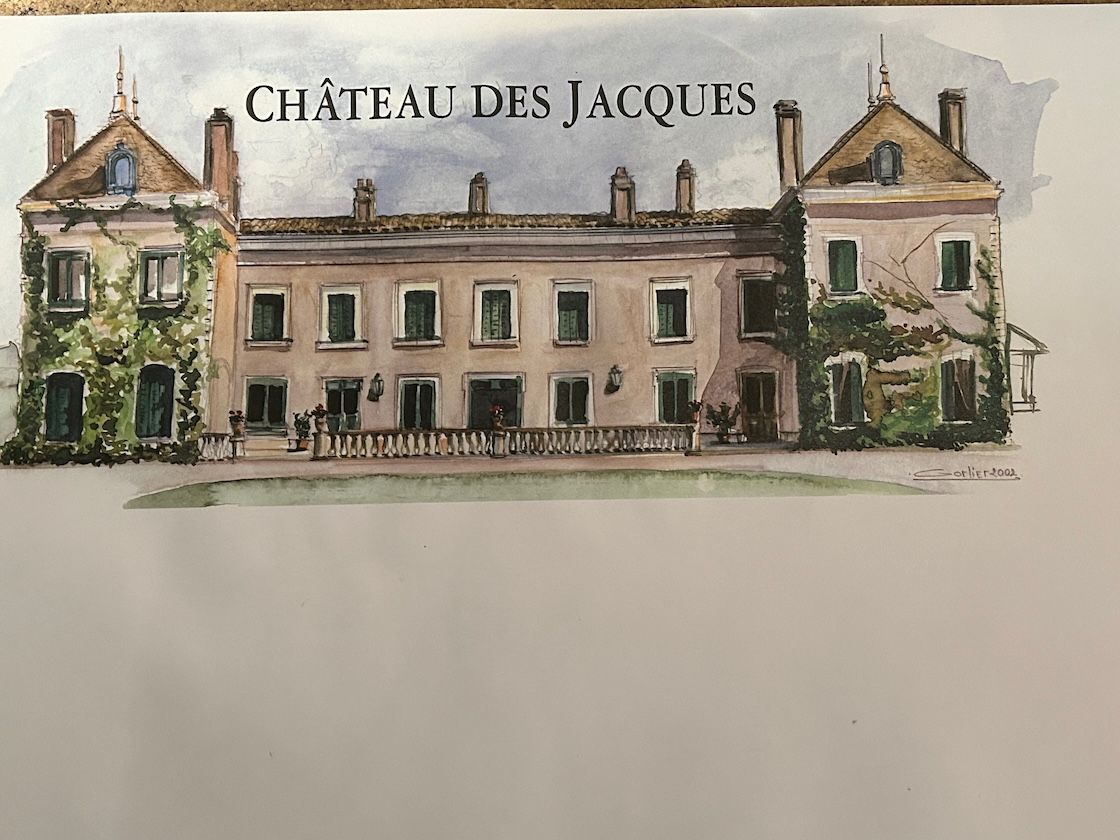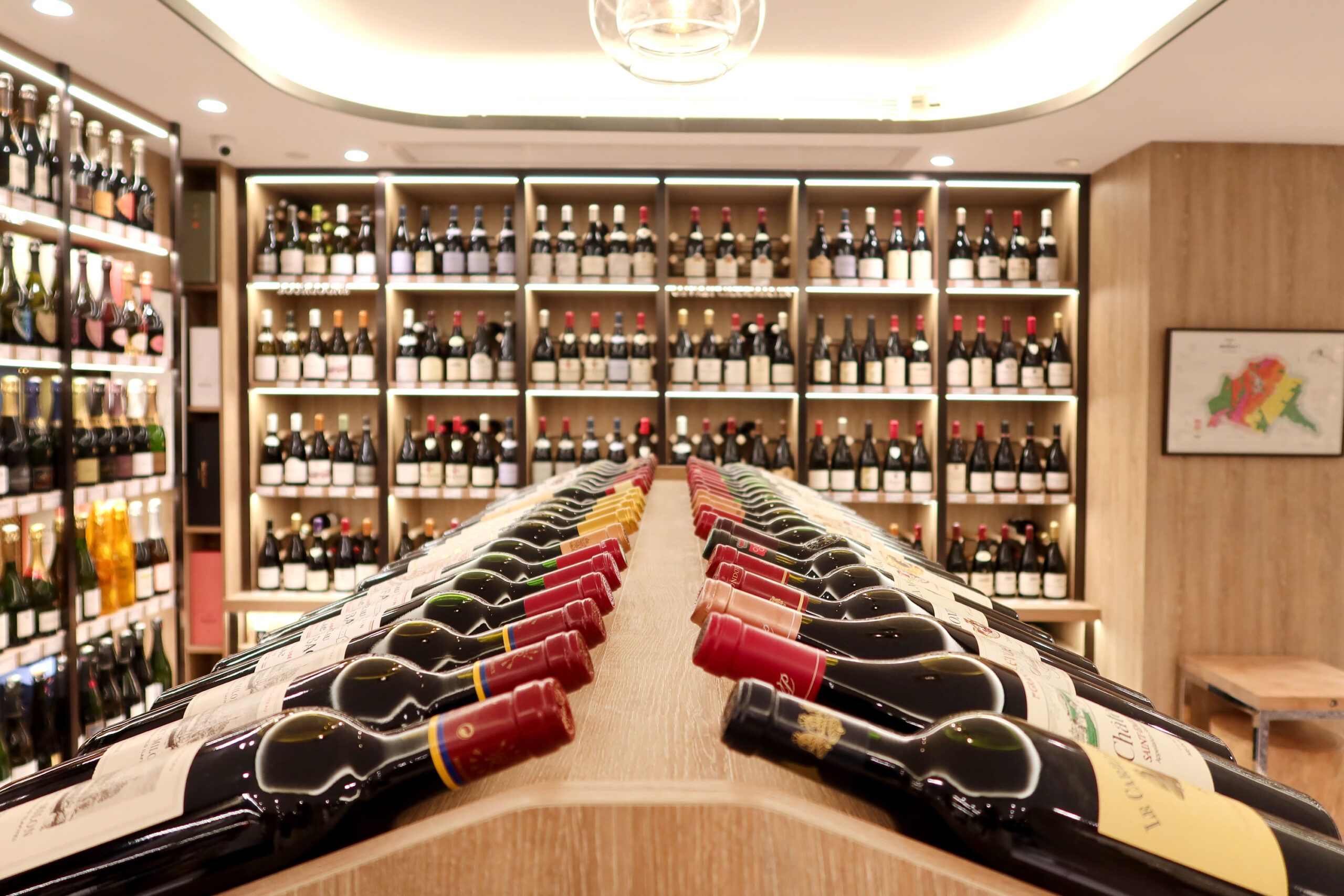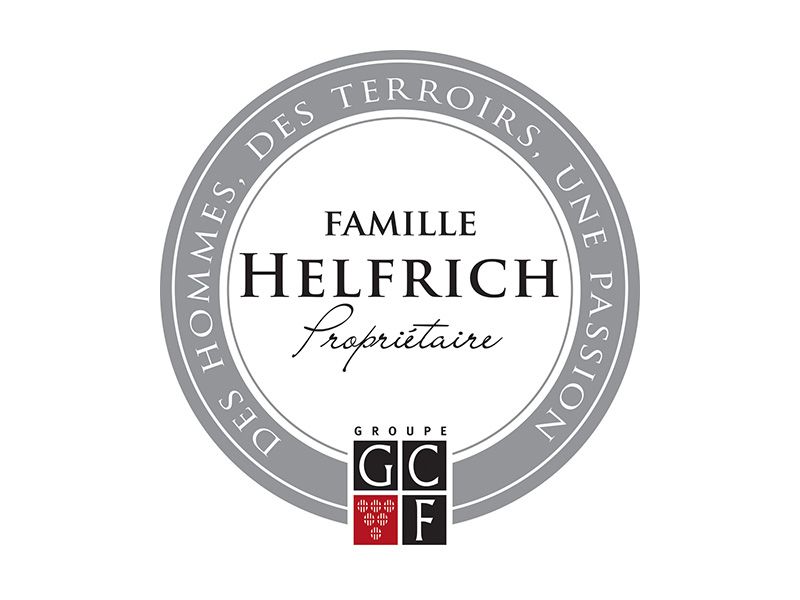“I am encouraging all the independent producers to submit wines for selection because this is a real opportunity for them. It shows we can make great, gastronomic white wines in the Languedoc,” says Olivier Azan about the Patience Picpoul de Pinet project.
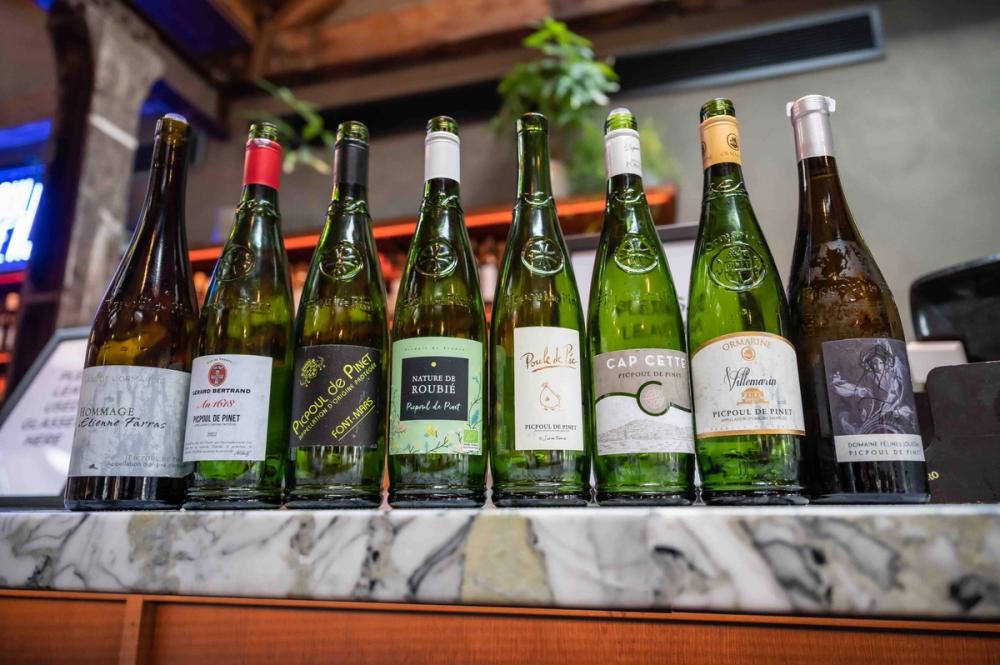
A small selection of quality Picpoul de Pinet at the London tasting
I am immediately cheered by the sight of a line-up of Neptune bottles, signaling a tasting of Picpoul de Pinet that I’ve looked forward to very much. Neptune’s distinctive form and green colour, has become synonymous with these refreshingly vibrant, competitively-priced wines, making them readily identifiable to even the least wine savvy consumers.
Having not been on the radar of UK wine consumers until relatively recently no wine list these days, it seems, can even get going without at least one listing of Picpoul de Pinet.
The London tasting was part of Picpoul de Pinet AOP’s tenth anniversary celebrations, a chance to taste the latest vintages as well as hear about the region’s latest concept. Called Patience, this is an attempt to extend the category to wines that are gastronomic, complex and have ageing potential.
But first a little bit of a scene-setter
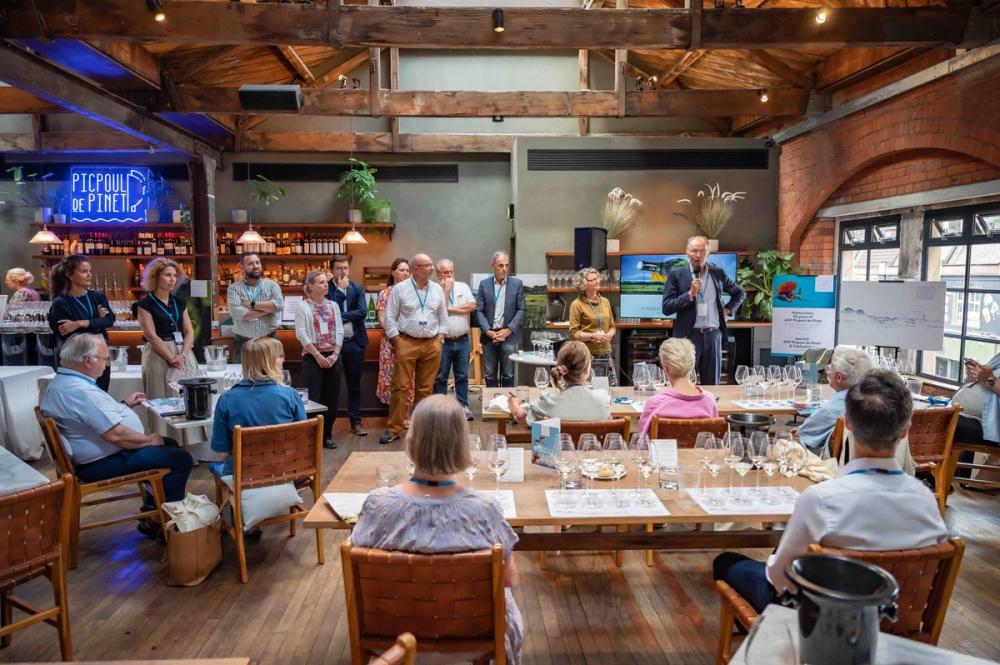
Producers, press and buyers hear about 10 years of Picpoul de Pinet AOP, London, June 19, 2023
Covering 1,550 hectares Picpoul de Pinet is the only dry white wine appellation in the Languedoc. It is also unique, being the only appellation in France where it is permissible (indeed, mandatory) for the wines to be made uniquely from the Piquepoul grape.
This old, native variety has two key qualities, central to its current – and ongoing – success. Firstly: late ripening with naturally high acidity. Secondly, it is very resistant to drought. These natural combatants to steadily rising temperatures are being further supported by genetic research to optimise the grapes’ adaptability to changes in climate.
The “terroir or merroir” vineyards can broadly be separated into two terroirs: Les Piochs in the north, and the Marin plateau that abuts the Thau lagoon in the south. Both are blessed with deep soils: Les Piochs marked by limestone and red ochre topsoils, while clay, silt and sandstone are prevalent in the Marin plateau vineyards.
The official recognition of Picpoul de Pinet as a specific regulated region, or Appellation d’Origine Protégée (AOP) came surprisingly late in the day when 10 years ago it was given AOC status in 2013 (amended to AOP in 2017). Before then, since 1954 it had VDQS status and was allowed to use AOC Coteaux du Languedoc from 1985. Although only 10 years old, the AOP is a key French wine region now and one which gets stronger year by year.
The UK, for example, is the most important export market, with 41% of production ending up here: an impressive stat, that has grown by 16% in the last five years alone. The thirst here for Picpoul de Pinet – moderate-alcohol, sprightly dry whites – is understandable, especially given its good quality to value-for-money ratio.
The appellation’s wish to see sales continually increase in the UK market will most likely succeed if they maintain the quality levels they are achieving at the less expensive end of the category. That said, there is an attempt to extend the category into premium Picpoul, with a concept called Patience.
So what exactly is Patience Picpoul de Pinet?
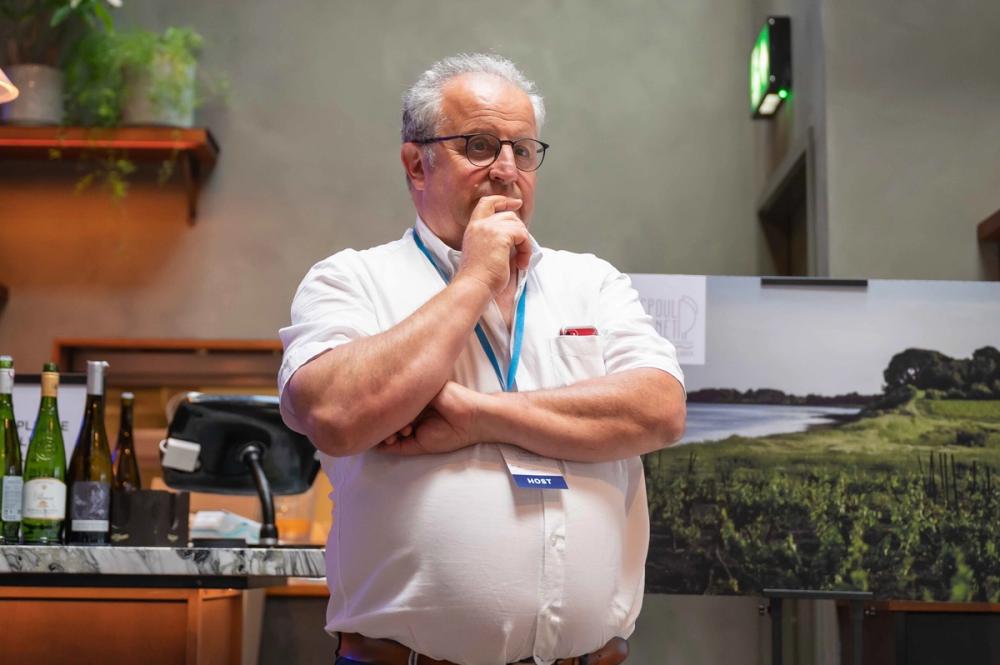
Olivier Azan: representing independent producers in Picpoul de Pinet AOP
At the 10-year anniversary tasting there was an eight-wine masterclass providing an opportunity to explore the appellation’s new concept: Patience. This is not an official category, with the officials keen to emphasise that, “it is not a brand, but a concept.”
Patience wines are selected blind by a jury of producers, oenologists, and technicians. To make the grade, the wines must have:
- great gastronomic credentials, with the qualities to achieve listings in Michelin-star restaurants;
- above average complexity;
- evident ageing potential.
Patience Picpoul de Pinet wines come in a brown Neptune bottle, and it is their price, I am told, that will be the clearest indicator of their difference to the consumer.
As Olivier Azan from Domaine de Petit Roubié, and spokesperson for independent producers in the AOP explains: “the jury selection is well-managed. The tasting is undertaken blind, and the wines must have Picpoul’s characteristic crispness. We reject wines that have wood influence, are oxidative in any way, or have any astringent notes.”
“I am encouraging all the independent producers to submit wines for selection because this is a real opportunity for them. It shows we can make great, gastronomic white wines in the Languedoc. But I also know that some producers won’t submit: one producer doesn’t want to use the brown Netpune bottles, and his wines sell out every year… he doesn’t need to enter his wine to the jury, and he doesn’t want to.”
Azan sits on the tasting jury for Patience, and his wine made the grade. It was a shame not to have the chance to taste it! Vintage Roots will be importing the wine, and I’m told its arrival on UK shores isn’t too far off.
But the proof is in the tasting
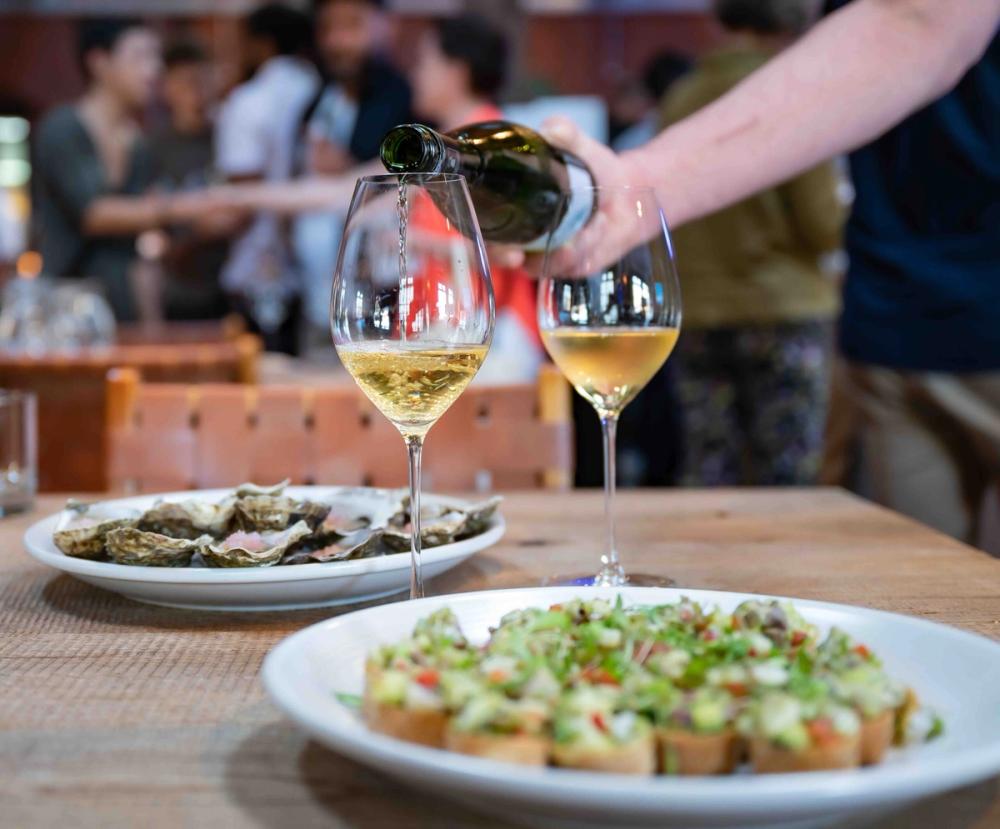
Food-pairing qualities of Picpoul de Pinet demonstrated on the day
Domaine Félines Jourdan has been making Picpoul de Pinet wines with ageing potential since 2016 so have something of a head start. Its Cuvée Féline 2021 was one of the star wines of the tasting. Grapes comes from a plot close to the Thau lagoon, where vines are planted on limestone and clay soils. Aged for six months, on its fine lees I love the fresh herb, aniseed, and distinctly saline quality to the wine. Terrific texture and length, with benchmark zip and zing. Irresistible. Available at Bibendum.
Ormarine’s Hommage à Etienne Farras 2021 doesn’t have an importer, and I think that’s a pity. Maceration for six hours at 7-8°C supports phenolic compounds in the wine, giving it more structure and a fuller body than many of the wines. Impressive complexity.
Personally speaking, I have some misgivings about the sustainability of this kind of model and I suspect, as Azan said, there will be some producers who will not choose to submit their wines for selection. It is, after all, a cost to do so and, if the wine is one of the chosen few, producers are expected to keep 250 bottles aside for future vertical tastings. Not a minor request.
So which other wines shone?
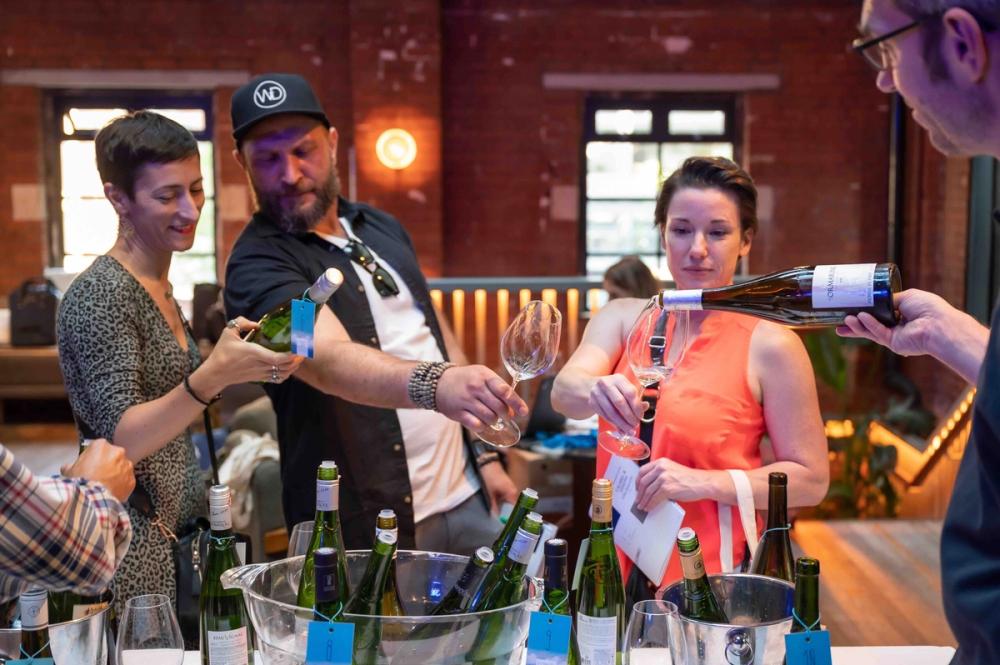
For all that the Patience wines impressed, my key takeaway of the tasting, was the consistency of the wines across the board – from entry level upwards – interspersed with some real stars. Here are a few that stood out.
Les Costières de Pomerols Cap Cette, 2022
Cave de Pomerols is one of four cooperatives in Picpoul de Pinet, with a whopping 1,800 hectares of vineyard at its disposal. I enjoyed the green pea, fresh-sliced Conference pear and herbal notes on this. Plenty going on, and that brilliant zippy finish. Bibendum
Domaine la Grangette Poule de Pic 2022
This wine was a cracker and ticked all my boxes, striking a pretty much perfect balance between characterfully medium-bodied with floral, aniseed and citrus. Dazzlingly fresh. Oh, and organic too.
Villa Noria, la Serre 2023,
Per-chance, another organic pick was the perfect Picpoul pick-me-up. Laden with lemon, pink grapefruit, and Bramley apple fruit, this summed up the best of summer drinking. Find-me-a-shellfish-platter! Hallgarten & Novum.
